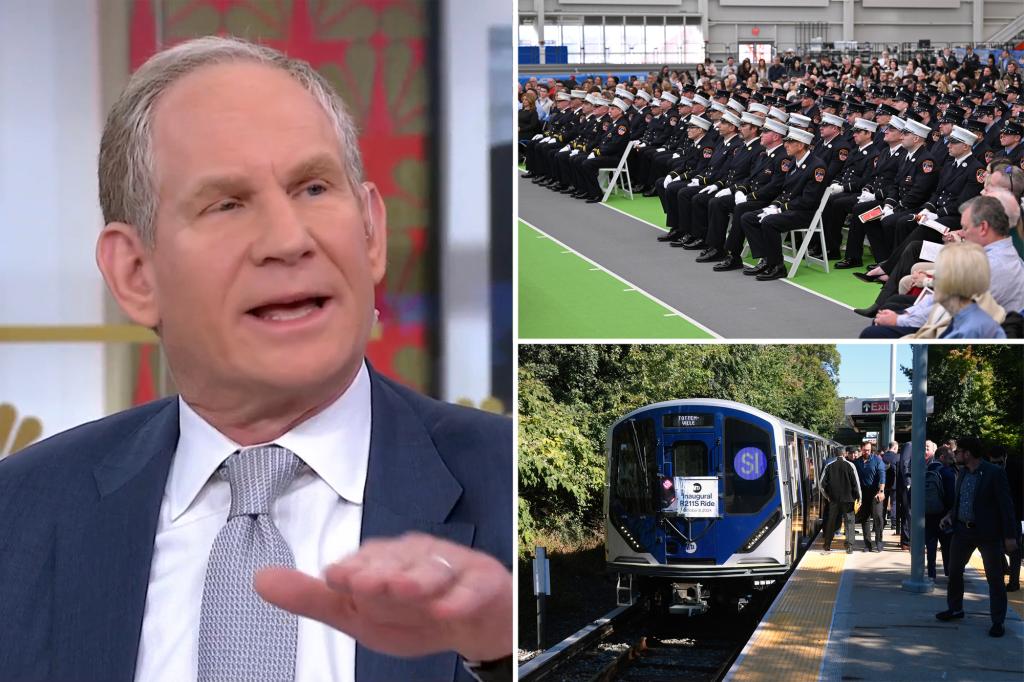Janno Lieber, the chairman and CEO of the Metropolitan Transportation Authority (MTA), has deflected responsibility for addressing the concerns of firefighters regarding the newly implemented congestion pricing toll in Manhattan. During a radio interview, Lieber advised firefighters to negotiate with the city, their “employer,” regarding compensation for the toll, rather than appealing to the MTA. He emphasized that the MTA is not the appropriate venue to resolve the specifics of individual or collective bargaining agreements. This sparked immediate backlash from fire unions, who criticized Lieber’s perceived lack of understanding of FDNY operations and the potential impact of the toll on response times.
The congestion pricing plan, which went into effect recently, imposes a $9 toll on vehicles entering Manhattan below 60th Street. Fire unions have voiced concerns about the financial burden this places on firefighters who use their personal vehicles to travel between firehouses, a common practice employed to address staffing shortages across different locations. They argue that the toll could deter firefighters from using their personal cars, potentially leading to delays in response times to emergencies. The unions contend that an exemption for FDNY personnel would be beneficial for both the city and the MTA, ensuring efficient emergency services. However, Lieber maintains the MTA’s stance that individual employment arrangements are not within their purview to resolve.
Fire union leaders have strongly criticized Lieber’s response, labeling his lack of comprehension regarding FDNY operations as “appalling.” Andrew Ansbro, president of the Uniformed Firefighters Association, stressed the importance of an exemption to allow firefighters to traverse the congestion pricing zone efficiently. He underscored the significance of personal vehicles in maintaining optimal staffing levels across firehouses and ensuring swift responses to emergencies. Jim Brosi, president of the Uniformed Fire Officers Association, also expressed disappointment in Lieber’s seeming unpreparedness to address the potential consequences of the congestion pricing plan for the FDNY. Brosi highlighted the reliance on personal vehicles for firehouse staffing and criticized Lieber’s apparent inability to acknowledge the negative impact of the toll on public safety.
The crux of the dispute lies in the differing perspectives on responsibility and the perceived lack of foresight in addressing the potential impact of the congestion pricing plan on essential services. Lieber maintains that the MTA is not responsible for the financial implications of the toll on individual employees, including firefighters. He asserts that such matters should be addressed through collective bargaining agreements between the firefighters and their employer, the city. The fire unions, on the other hand, argue that the MTA, as the entity implementing the congestion pricing plan, should have anticipated and addressed the potential impact on emergency services. They believe an exemption for FDNY personnel is a practical solution that would benefit both the city and the MTA.
The fire unions’ criticism extends to Lieber’s perceived lack of understanding of the practical realities of FDNY operations. They argue that his dismissal of their concerns demonstrates a disconnect between the MTA’s policy decisions and the on-the-ground implications for essential services. The reliance on personal vehicles for staffing and the potential delays caused by the toll are, according to the unions, crucial factors that Lieber has failed to adequately address. They contend that his focus on contractual arrangements overlooks the broader issue of public safety and the need for unimpeded access for emergency responders.
The FDNY has deferred comment to City Hall, indicating a potential shift in the locus of responsibility for resolving the issue. Mayor Eric Adams’ administration has acknowledged the concerns raised by the fire unions and confirmed that discussions are underway. While the specific outcome of these discussions remains to be seen, the ongoing debate highlights the complexities of implementing large-scale policy changes and the importance of considering their impact on various sectors, including essential services like the FDNY. The tension between the MTA, the fire unions, and the city government underscores the need for collaboration and proactive solutions to ensure public safety while implementing new transportation policies.



